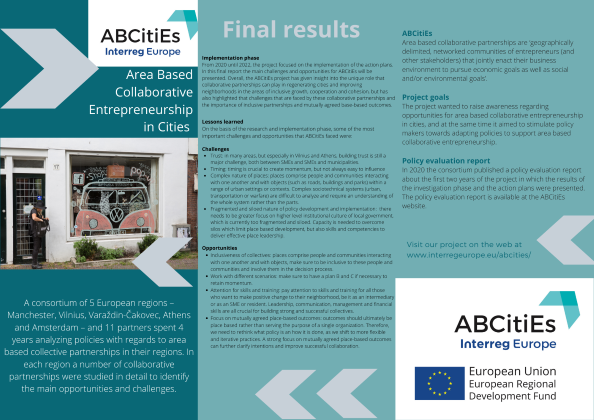
ABCitiEs final dissemination results
On 23 February 2022 we had a lively online final event, hosted by the Manchester Metropolitan University. In the leaflet, ABCitiEs major findings are presented.
Across European cities local entrepreneurs are joining forces in new ways, forming collectives to stimulate business growth and innovation and to create a more attractive business environment. Area Based Collaborative Entrepreneurship (ABCE) means entrepreneurs collaborate by co-investing in facilities or technology, market their urban district collectively, improve shared public space, etc. The value of such collectives is increasingly recognized by local governments and policy measures to stimulate these initiatives are being developed.
Area based collaborative entrepreneurship fosters urban regeneration as the participating firms are most often strongly connected to their neighbourhood and committed to social goals. Neighbourhood liveability and social ties between local stakeholders are enforced. ABCE supports inclusive growth, cooperation and cohesion and helps to address the negative impacts of globalization such as economic restructuring, income inequality and the decline of urban areas.
The current policy instruments of the project partners seek to promote knowledge-based SME innovation and access to funding but they show a lack of attention to the emerging networked and locally anchored types of initiatives that promote inclusive growth, innovation and regeneration. For this reason we intend to develop recommendations for four OPs and one other policy instrument in European regions by capturing local learnings systematically, identifying critical success conditions and sharing them across regions in Europe.
Five European urban regions are involved in this project: Amsterdam, Athens, Manchester, Vilnius, and the conurbation Varazdin-Cakovic (Croatia). All regions currently experiment with ABCE and initiated this project to share experiences and gain deeper insights in order to develop more effective policy instruments
€1,342,232.00
SME competitiveness
The OP covers the 4 largest cities of the Netherlands. It has a strong focus on SME-innovation and urban development (Integrated Territorial Investment (ITI, priority 9b) for peripheral city zones. The OP remarks the importance of co-operation with other parties, including other SMEs, for SME competitiveness and innovation.
However, the OP is little concrete in how this co-operation could work, how policies could be best designed to promote the self-organization of SMEs into collectives.
The OP concentrates on knowledge-intensive SMEs, but it lacks attention for the innovative capacity and social-economic potential of low-tech, traditional SMEs. Also the OP fails to explicitly recognize the potential of SME collaboration for urban development and treats SME policy as a separate topic. What lacks are instruments and funding mechanisms appropriate for local collaborating “teams” that want to co-innovate, or co-invest in shared facilities/technologies that increase collective opportunities.
We envision improvement in two respects:
-Within the current OP, develop frameworks for more calls/projects for collaborative entrepreneurship that contribute to integrated urban development and competitiveness simultaneously.
-As input for the next OP, develop new local policy frameworks and governance mechanisms to promote or support the area based self-organisation of SME collectives, with the aim to effectively support collaborative efforts of SMEs to enhance their position.
The operational program (OPCC) inter alia provides interventions which focus on promoting entrepreneurship, facilitating the economic exploitation of new ideas, fostering creation of new firms, enabling favorable environment for business, as well as creation and improving SMEs' (TO3). Investment priority 6e provides for taking action to improve the urban environment, revitalize cities, regenerate and decontaminate brownfield sites (including conversion areas), reduce air- and noise-pollution. One of the specific objectives is rehabilitation of brownfields (ex-industrial and / or ex-military sites) so that they will be regenerated and put in use. Although a sustainable urban development and reconstruction are identified as reform measure, the re-use of the abandoned city sites primarily relates to improvement of environmental conditions. We believe that measures should be extended to economic reconstruction of abandoned city sites.
The relatively low utilization of the available structural funds in Croatia indicates that promoting entrepreneurship, as investment priority, should be better supported by horizontal measures. Based on demographic and economic analysis the project should contribute to improvement of OPCC instruments which do not match collaborative entrepreneurship and on other hand do not recognize abandoned city centres as potential that should be put into operation for the brownfield investment.
The GMSF aims for all places and residents to share in the benefits of growth at the same time as building a resilient Greater Manchester (GM).
a) Policies SL1 and SL2 identify locations with most potential for economic growth and prosperity
b) Policy GM1 states that there will be a very strong focus on the regeneration of urban areas
c) GM7 and GM19 outline polices for Retail, Leisure & Tourism, Heritage & Resilience for delivering quality places
Problems:
a) Place management partnerships or area based collaborative enterprises (such as Business Improvement Districts) are a recognised structure to deliver valuable place-based outcomes, such as inclusive growth, but the current adoption of such structures is very low across GM
b) Regeneration is synonymous with a silo-approach, predicated on a conventional planning mechanism to promote private sector-led housing and commercial development, sometimes underpinned by the use of public investment. Consequently, there is limited recognition of both the role of incumbent organisations and stakeholders in the mediation of how places change, and the importance of embedding measures for change in the GMSF
c) Creating high quality places with distinct identities requires collaboration across the public, private, voluntary sectors as well as with residents. Although the GMSF identifies key quantitative development outcomes, it does not set out the value of effective area-based collaborations to achieve these or measures to support them
The OP covers all Lithuania. As it concerns SME innovation and urban development, the investment priorities (IP) are:
IP 3.1. To increase entrepreneurship. Measures: a) provision of high quality advisory services to SMEs; b) introduction of new financing models
IP 3.3. To boost SMEs productivity. Measure: support of innovative management approaches and systems in enterprises
IP 7.1. To promote urban development. Measures: a) modernisation of public spaces; b) conversion of infrastructures and territories
Our project aims to solve the following problems:
a) the OP leaves behind local innovative “grass-root” initiatives, as well as low-tech traditional SMEs
b) the OP fails to recognise the potential of SME collaboration for urban development, therefore single entrepreneurial initiatives lead to fragmentation of urban commercial centres, and subsequently result in “semi-developed” areas with low vitality and weak resilience
c) lack of innovative financial instruments in the OP (f.e: collective ownership of assets) prevents SMEs to develop new activities;
d) high costs of real estate rent and development prevent SMEs to step in urban commercial areas
Also IP 7.1 declares that modernisation of public spaces will be complemented with entrepreneurship promotion actions, but there is no further elaboration of how it could be done within specific measures. There is just a brief mention about complementarities with instruments which aim to promote SMEs development & entrepreneurship
The main objective of the OP is to enhance high quality entrepreneurship spearheaded by competitiveness, innovation and extroversion. The program covers the whole of Greece with a public expenditure budget of 4.67 billion euros. There are three basic Priority Axes:
• Enhancing entrepreneurship with sectoral priorities
• Adaptability of workers, enterprises and entrepreneurial environment to the new development requirements
• Development of mechanisms to support entrepreneurship
The above PA divided into 19 special objectives that serve specific EU investment priorities and thematic objectives as defined in NSRF 2014-2020.
In the midst of the severe economic and social crisis collective area based micro entrepreneurship can be highly beneficial for small firms and urban areas. However, there is a notable absence of special measures of OP-CEI targeting at such ventures. More specifically, we tackle the following problems that need to be improved:
a) The great majority of policy measures point to the single firm. Given the big numbers of micro and nano firms operating in Greece, dozens of thousands of firms have been excluded from this policy due to lack of information or/and organisational capacity.
b) The spatial dimension, mainly the area specificities and the various linkages of the firm with the wider area of location, are completely ignored.
c) There is a clear prioritization to hi-tech projects while low-tech social and organizational innovations are overlooked.

On 23 February 2022 we had a lively online final event, hosted by the Manchester Metropolitan University. In the leaflet, ABCitiEs major findings are presented.

This event marks the conclusion of the project, and provides an opportunity for partners to highlight the progress that has been made over the last three years.
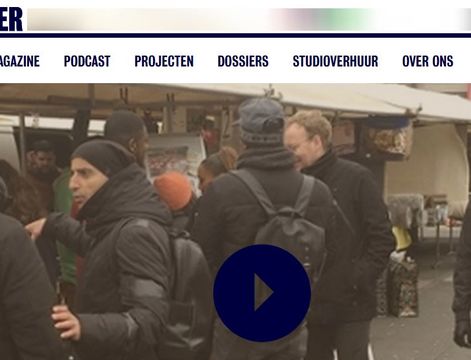
View the Live recording of our latest event at the Pakhuis de Zwijger!
Sharing lessons learned from working with Right to Challenge in Amsterdam
WED 9 JUNE
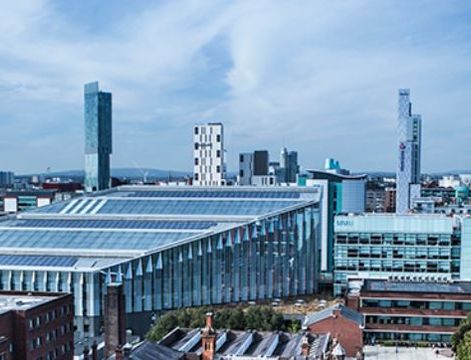
Restoring vitality and viability in district: the Manchester approach
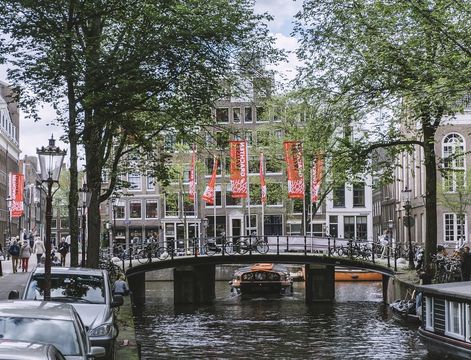
In the first quarter of 2020, the Dutch economy shrank by 1.7% compared to the previous quarter.
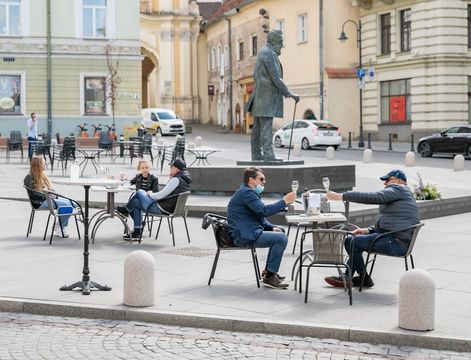
Municipality Shares Public Spaces with Restaurants
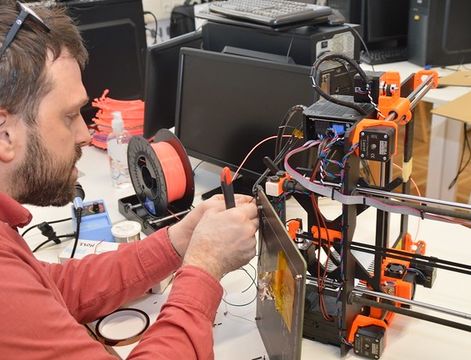
During March and April 2020, the Faculty of Organization and Informatics joined the 3D printing campaign of visors for the protection of medical staff.
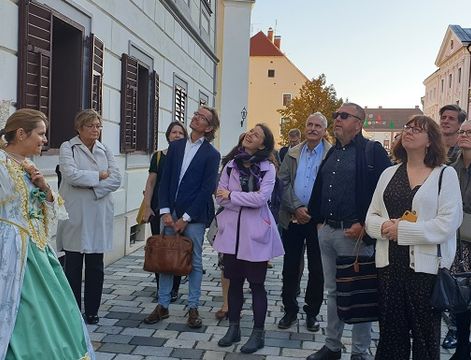
Eleftheria Alexandri (Municiality of Athens) shares her experience of the ABCitiEs Interregional Meeting in Croatia.
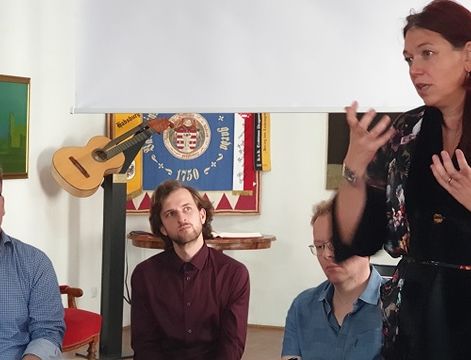
Mark van Marken and Hettie Politiek (Municipality of Amsterdam) share their experience of the Interregional Meet-up in Croatia.

Blog of researcher Iris Hagemans on the importance of SME-owners participating in Interregional meetings.